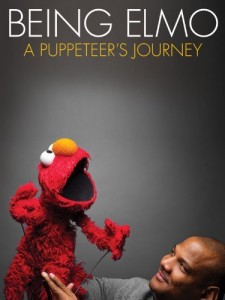 We’ve previously talked about how you, as a youth worker, can foster relationship between the youth you work with and their parents.
We’ve previously talked about how you, as a youth worker, can foster relationship between the youth you work with and their parents.
One way to do this is by holding a family movie night followed by a communication session between parents and their youth. There are many movies that might work depending on what you’re trying to achieve through the session. However, for this post I’m going to recommend you start with ‘Being Elmo: A Puppeteer’s Journey’ which is about Kevin Clash – the voice and puppeteer of Elmo from Seasame Street.
Despite the film being about puppets – and a 3 1/2 year old puppet at that – it’s not a film designed for small children. It’s a documentary about Kevin’s early life and the experiences that led him to be a part of one of the most loved and critically-acclaimed children’s shows of all time.
It shares how Kevin grew up with very supportive parents, along with the dreams he accomplished as a result of those early beginnings. It also shares about the other adults in Kevin’s life who took chances on his dreams and gave him the tools and the connections he needed to achieve his goal of being a Muppeteer on Seasame Street.
Use this movie to foster communication between the youth and their parents about their goals and dreams and how they feel their relationship is developing. It may be challenging for some parents and their children to open up, so make sure you that you’re on hand to help facilitate any quiet parent/youth pairs.
Before The Session
- Make sure you effectively communicate the details of the event to your parents and youth with enough time for them to participate
- Check if you need to get a movie license before showing the film or order the Educational DVD which includes an audience license
- Decide if you want to provide food (including what type) and/or if you’d like to also have this meal be a fundraising opportunity for your youth work program.
At The Session
- Eat (if applicable)
- Watch the film
- Break out into parent and youth pairs for a time of discussion about the film. You may want to provide communication information and activities before starting the session to get everyone more comfortable with the process of communicating, as this may be new for some parents and youth.
- You and your volunteers should move around the room and help facilitate discussions between parents and youth. Don’t jump in and answer on their behalf, but help ask further questions if a pair is feeling stuck.
- Encourage both youth and parents to be really honest with themselves and each other about their behavior and their feelings. This will only work if everyone is willing to check their ego at the door to discuss some hard truths about how they behave and interact with each other.
Possible Discussion Questions
(P) Questions to parents posed by you or the youth (Y) Questions to youth posed by you or their parents
- (P) Kevin cut up his father’s coat for his first puppet. How do you feel you would have responded? (Y) How do you feel your parents would have responded? (Both) If your answer was different from your parent’s/child’s, what examples do you have that back up these feelings?
- (Y) What is one thing that you feel as passionately about as Kevin did about pupeteering? (P) What is one thing you see that your child has a talent for?
- (Y) What is one thing you’ve tried to do to make that dream a reality? (P) Kevin’s mom picked up the phone and called Kermitt Love for Kevin. What is one thing you have done or can do to help your child make their dream a reality?
- (P) Kevin missed out on a lot of his own child’s life while ‘Being Elmo’. Do you feel you are spending enough time with your youth while they are still at home? How would you feel if your child wrote you a letter like Kevin’s did? (Y) If you could write a letter to your parents about how much time they spend with you, what would it say? Do you feel like you get enough time (or got enough when you were younger) with your parent(s)? (Both) If your answer was ‘no’, what is one thing that you can do to spend more time together?
- (Y) Which adults can you identify as dream squishers and dream enablers in your life? Which of these categories do you think your parent(s) fall into and why? (P) How do you feel about being identified as a dream squisher or enabler? What is one thing you can do to keep improving your enabling or reducing your squishing tendancies?
- (Both) What is one thing you will remember most about this film and this evening and why?
Question: What do you think of holding parent and youth communication sessions? Have you done it before? Were they successful – why or why not? We’d love to hear about your experiences in the comments below.
You can also connect with us by:
- Signing up to receive our posts via email
- Following us on Twitter
- Liking us on Facebook
- Signing up to our RSS feed



 Q: I have this parent who’s way too involved in my youth work. I like that they’re supportive, but enough is enough! They stop by unannounced, want to be at every event and seem kind of co-dependent with their youth – it’s like they can’t be apart from them. I want supportive parents and appreciate the help they provide at some of my programs, but seriously – it’s time to “cut the apron strings.” But I can’t tell them this, so what can I do?!
Q: I have this parent who’s way too involved in my youth work. I like that they’re supportive, but enough is enough! They stop by unannounced, want to be at every event and seem kind of co-dependent with their youth – it’s like they can’t be apart from them. I want supportive parents and appreciate the help they provide at some of my programs, but seriously – it’s time to “cut the apron strings.” But I can’t tell them this, so what can I do?!